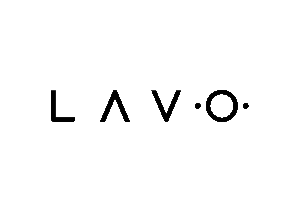Our Projects
Development of a world-class hydrogen fuel-cell manufacturing plant

Project description and overview:
Nedstack BV is a world-leading Fuel Cell manufacturer with more than a decade of experience in this field. This project seeks to build prototype hydrogen Proton Exchange Membrane (PEM) Fuel Cells with a supporting engineering lab and testing structure using Australian-sourced parts and materials. After an initial 18-month product development, simulation and testing regime, the project will move into the next phase which will be the first full-scale PEM Fuel Cell manufacturing operation in Australia.
This project will establish a PEM fuel cell manufacturing facility in Australia which will reduce dependency on imported fuel cells. Locally manufactured fuel cells can cater for growing demand for fuel cells in power supply units, telecom industry, mining industry and fuel cell vehicles. Most importantly, it will give Australia control over the sovereign risk of the hydrogen eco-system supply chain. A long-term sustainable solution is to manufacture fuel cells and hydrogen eco-system in Australia with strong local tech-support network to help Australian key industries meet their net-zero targets.
The world-class hydrogen fuel-cell manufacturing plant which will be located in Springfield City, QLD. Springfield City seeks to position itself as the world’s first green hydrogen city, an Australian “Hydrogen Valley”. Springfield City has committed to achieving zero emissions by 2030 and to fulfill this commitment they have recognised the need to pursue a range of zero emission technologies, predominantly hydrogen, to set up facilities in their commercial and light industrial precincts. Their intention is to extend and expand this direction in coming years using the Nedstack advanced manufacturing fuel cell facility as a catalyst for this expansion.
The Nedstack facility will be the first full scale fuel cell manufacturing facility in Australia. The expansion plan is for it to be the largest in the southern hemisphere. It is their intention to follow this path of high volume throughput and be able to do this through the internal capacity demand provided by the LAVO hydrogen battery being developed in parallel. Besides the LAVO product, the fuel cells will be sold to a range of hydrogen/electrical application developers. Generally these developers will in turn be providing bespoke hydrogen power solutions to a range of different industries where lithium ion batteries are deemed unsuitable for these applications.
The project of making Fuel Cells in Australia will not only win on quality and pricing, as it is backed by Nedstack’s decades of manufacturing expertise, but also on dedicated local after sales support and continued future enhancements through R&D inputs of Australian Research Institutes.
EXPECTED IMPACT
- Increased spending on R&D
- Increased collaboration with other manufacturers
- Increased number of staff with science, technology, engineering, and maths (STEM) skills
- Better qualified employees
- Larger patent portfolio
- Increased levels of automation
- Newer equipment
- Better energy efficiency
- Greater capital intensity
- Larger geographical reach
EXPECTED GROWTH
- Nedstack forecast $130.6M in revenue over 4 years
EXPECTED JOBS
- This project is projected to upskill and create an additional 21 jobs
Contributions:
Government Funds: $825,000 | Industry: $825,000 | In-Kind: $1,910,000




